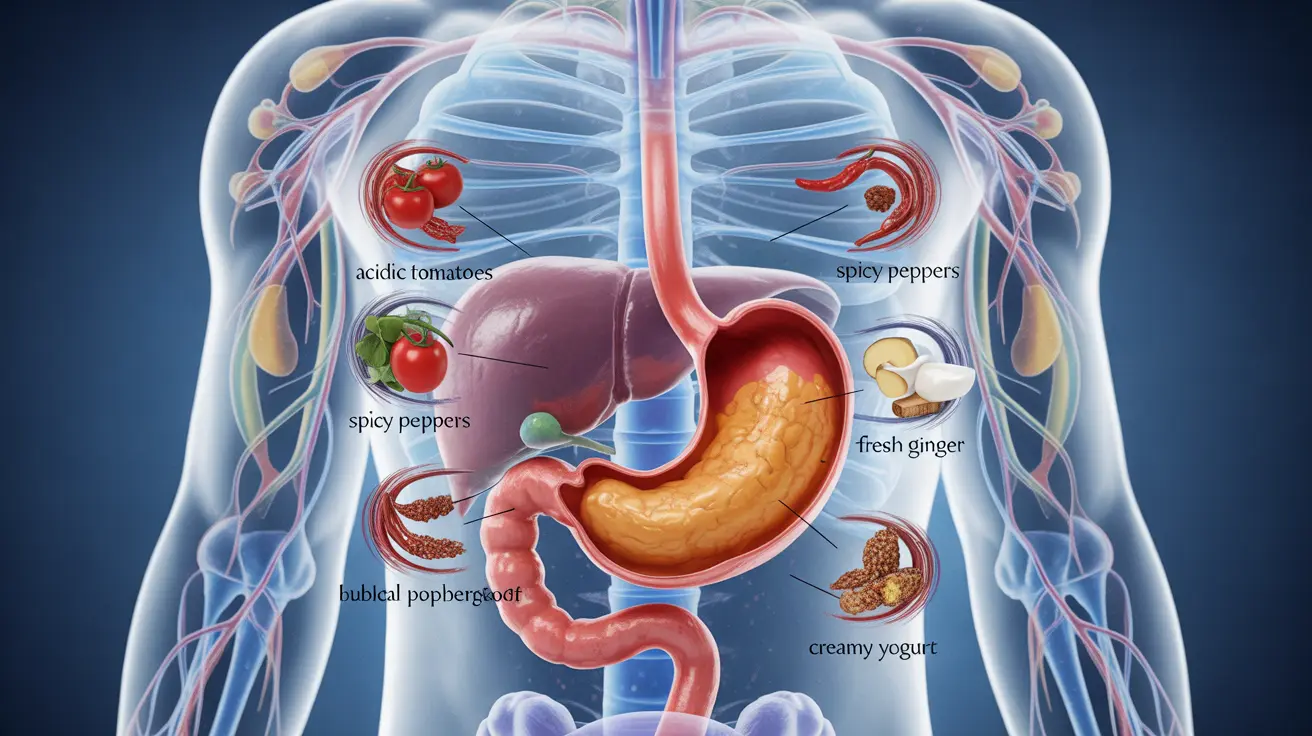A sour stomach, characterized by an unpleasant acidic sensation in the upper digestive tract, is a common condition that can significantly impact your daily comfort and well-being. While most people experience this discomfort occasionally, understanding its causes and knowing effective management strategies can help you find relief and prevent future occurrences.
This comprehensive guide explores the various triggers of sour stomach, proven relief methods, and preventive measures to help you maintain optimal digestive health. We'll also discuss when these symptoms warrant medical attention and how certain medications might influence your digestive comfort.
Common Causes and Triggers of Sour Stomach
Understanding what triggers a sour stomach is crucial for effective management and prevention. Several factors can contribute to this uncomfortable condition:
Dietary Triggers
- Acidic foods and beverages
- Spicy or heavily seasoned dishes
- Caffeine and carbonated drinks
- Large or heavy meals
- Alcohol consumption
Lifestyle Factors
- Eating too quickly
- Lying down shortly after meals
- Stress and anxiety
- Irregular eating patterns
- Poor sleep habits
Effective Relief Methods
Natural Remedies
- Ginger tea or candied ginger
- Peppermint tea
- Apple cider vinegar (diluted)
- Plain yogurt or probiotic-rich foods
- Banana consumption
Over-the-Counter Solutions
- Antacids for quick acid neutralization
- H2 blockers for reduced acid production
- Digestive enzymes
- Probiotics supplements
Prevention Strategies
Implementing the following lifestyle modifications can significantly reduce the occurrence of sour stomach:
Dietary Adjustments
- Eat smaller, more frequent meals
- Avoid known trigger foods
- Maintain regular meal times
- Stay hydrated with water
- Choose easily digestible foods
Lifestyle Changes
- Practice mindful eating
- Maintain an upright position after meals
- Manage stress through relaxation techniques
- Exercise regularly but not immediately after eating
- Keep a food diary to identify triggers
When to Seek Medical Attention
While most cases of sour stomach are temporary and manageable at home, certain symptoms warrant professional medical evaluation:
- Persistent symptoms lasting more than two weeks
- Severe abdominal pain
- Unexplained weight loss
- Difficulty swallowing
- Blood in stool or vomit
- Chronic fatigue
Frequently Asked Questions
What causes a sour stomach and how can I identify the triggers?
A sour stomach can be caused by various factors including dietary choices (spicy, acidic, or fatty foods), eating habits (large meals or eating too quickly), stress, and certain medications. Keep a food and symptom diary to identify your personal triggers.
What are the most effective home remedies and over-the-counter treatments for sour stomach relief?
Effective home remedies include ginger tea, peppermint, small sips of water, and eating plain foods like bananas or toast. Over-the-counter options include antacids, H2 blockers, and digestive aids. Choose based on your specific symptoms and their severity.
How can dietary and lifestyle changes help prevent sour stomach symptoms?
Prevention involves eating smaller portions, avoiding trigger foods, maintaining regular meal times, staying upright after eating, managing stress, and practicing mindful eating. These changes can significantly reduce the frequency and severity of symptoms.
When should I see a doctor for persistent or severe sour stomach pain?
Consult a healthcare provider if symptoms persist beyond two weeks, are accompanied by severe pain, unexplained weight loss, difficulty swallowing, or if you notice blood in your stool or vomit.
Are certain medications or health conditions linked to sour stomach and indigestion?
Yes, medications like NSAIDs, antibiotics, and some blood pressure medications can cause stomach discomfort. Health conditions such as GERD, ulcers, and gastritis may also present with sour stomach symptoms. Always discuss medication side effects with your healthcare provider.




